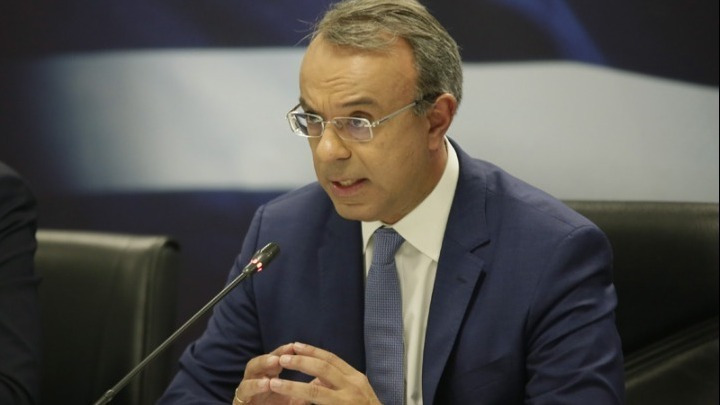Finance Minister Christos Staikouras highlighted the historic nature of the draft 2023 budget that will be submitted to parliament at noon on Monday, in an exclusive statement to the Athens-Macedonian News Agency (ANA).
“It is the first [budget] in the last 12 years that was drawn up outside of a framework of memorandum supervision or enhanced surveillance, in this way sealing Greece’s return to European normality,” he said, while also noting the economy’s return to primary surpluses.
“It is a budget that highlights the hardiness and increased resilience that the Greek economy has shown during successive crises, recording its steady, strong and sustainable course of growth, as well as the significant decline, by more than five points relative to 2019, of unemployment, and reflecting the great potential and prospects of the country,” he added.
As Staikouras noted in his statement to ANA, “these figures are also confirmed by the European Commission, which forecasts that Greece will achieve growth rates in 2022 that are double the European average and the third-highest in the Eurozone, and triple the European average in 2023.”
At the same time, he added, the government does not overlook the fact that the international environment remains “unsettled, filled with high levels of uncertainty, rising dangers, new threats and great volatility, which affect our country as well.”
In the specific context, reliable sources reported that the Greek economy will grow at a rate approaching 5.5 pct of GDP this year (up from 5.3 pct in the draft budget forecast), while the growth rate the following year, due to geopolitical developments, will be slightly lower than the 2.1 pct forecast in the draft budget.
In addition, the budget envisages a primary surplus of 1.7 pct of GDP during the current year, while in 2023 it sees a primary surplus of around 0.7 pct of GDP. The big ‘thorn’ for the economy will be inflation, which is expected to run at approximately 10 pct this year and fall in the following year.
Particularly significant is the fact that, according to finance ministry figures, public debt declined by about 13 points as a percentage of GDP in the previous year and is forecast to fall by a further 25 points of GDP in 2022 and another 10 points of GDP in 2023. This means that the public debt will have declined by approximately 50 points as a percentage of GDP in three years, sending a “powerful signal” to markets and ratings agencies.
“For this reason, our main goal – as is reflected in the budget – is to preserve our country’s developmental course, on the one hand, while at the same time continuing to support society with measures that fall withing the limits of our fiscal capabilities, thus ensuring fiscal stability,” Staikouras said.
Concluding his exclusive statement to ANA, the finance minister stressed that the government’s goal was to “build” on the things that had been achieved with such great effort, “in order to further strengthen our economy and improve the daily life and prospects of each citizen. It is the responsibility of us all, toward the present and future of our country, toward the sacrifices of the citizens and the prospects of the younger generation. With responsibility, prudence and hard work we will succeed.”
SOURCE; ANA-MPA







